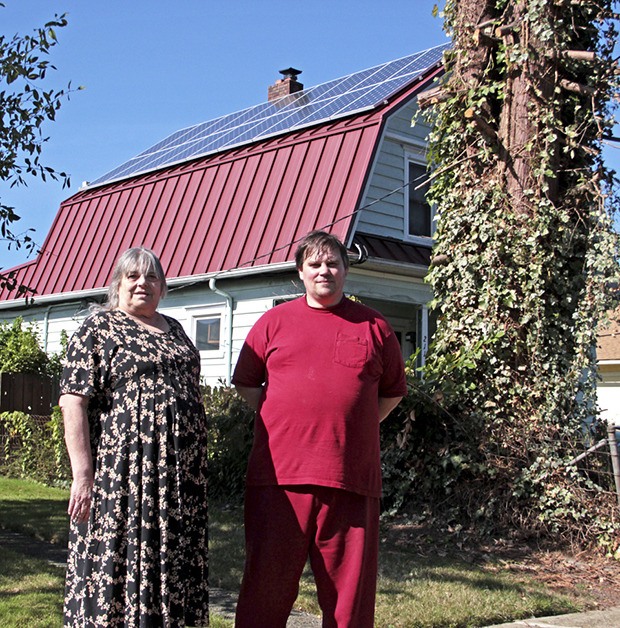Ever since Pamela Gunderson converted her home from electric to solar energy last month, the city of Auburn has been a shade greener.
The conversion, which Gunderson said is the first ever of its kind in Auburn, began last year.
“I started looking into having solar installed and found this company, SolTerra Systems,” said Gunderson, a 30-year Auburn resident.
Based in the Pacific Northwest, with offices in Portland and Seattle, the six-year-old company Gunderson discovered specializes in environmentally-friendly construction, including the installation of solar panels.
While a SolTerra employee was visiting her home, step one in the process, the employee and Gunderson evaluated the energy needs of the 95-year-old structure.
Gunderson said her goals were to get as close as possible to breaking even, to install enough of the costly panels on the barn-style roof of her house to sever its dependency on electricity and, if possible, to pour a little excess juice back into the grid.
“They looked at how many panels I would need,” Gunderson said. “And they said that with 24 panels, I would produce more for the year than I used and would end up with a credit.”
Not only would Gunderson eliminate her electricity bill, but by selling her excess energy, she would also make money off of Puget Sound Energy.
The conversion process was painless, Gunderson said.
“They were so great. In two days they had the panels up and ready to turn on. Then they got hold of Puget Sound Energy (PSE), and it was just a couple days later they came and put the meter in.”
All told, including the $83 she paid to PSE to get a new meter capable of measuring the energy she expects to feed back into the grid, Gunderson paid about $30,000 for the installation of the panels.
“It’s a lot of money, but if their figures are true and add up, I’ll have it paid for in five years,” she said. “As long as the sun casts a shadow, even if it’s overcast, we put just a tiny bit back into the system. It’s too late in the year now to put much of a credit in, but hopefully, next year, we’ll have had enough sun to make a ton of credits to use for the heating.”
Regardless of how many credits she earns, or how soon she begins to benefit from the installation, Gunderson said, she takes comfort in knowing that her 48-year-old son, Jack Kristen, and his 43-year-old wife, Raelaine Chamberland, both developmentally delayed, will have a leg up when they inherit the house.
“If nothing else, the power use will be low enough that the kids will be able to afford to stay in the house when I pass,” she said. “Because this house is expensive to run, it’s a pretty big house.”


